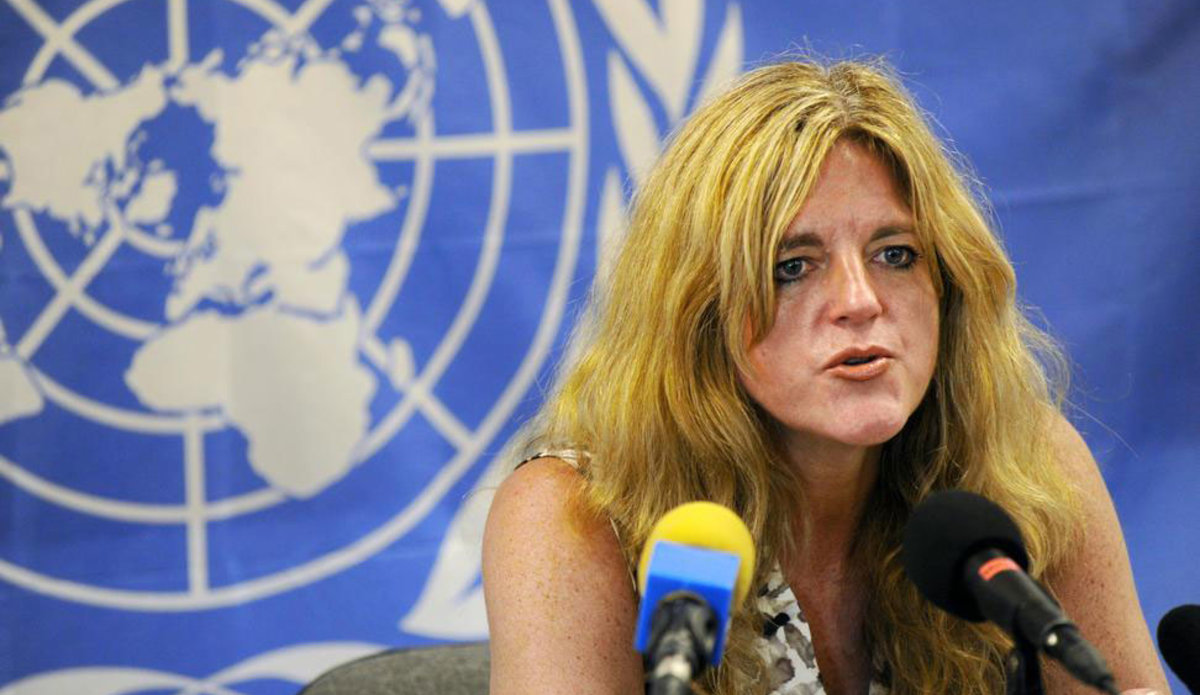“Virtually all energy has been ‘sucked into’ the relationship with Sudan. The tensions and delays in the process have prevented South Sudan from focusing on building their new nation,” Hilde Johnson, Special Representative of the Secretary-General and head of the mission (UNMISS), said in her first press conference of the year.
While South Sudan became independent from Sudan in July 2011, the peace between the two former warring countries had been threatened in 2012 by armed clashes along their common border, as well as outstanding post-independence issues that have yet to be resolved.
South Sudan has also been plagued by inter-communal violence. In recent weeks, there have been an increasing number of cattle raids in Unity, Lakes and Warrap states, including a deadly attack in Walgak in which more than 100 people were killed.
“UNMISS strongly condemns the attack,” Ms. Johnson said, calling on the communities, leaders and authorities in Jonglei state and South Sudan to end deadly violence and to use maximum restraint to prevent additional attacks.
“Everything must now be done to prevent a destabilization of Jonglei,” she added. The state is the largest in South Sudan, about the size of the country of Malawi.
An integrated UN team is now in Walgak to support local authorities in gathering information and interviewing survivors in a field hospital. Ms. Johnson said she was planning to go to the area early next week to meet with local authorities and the community, as well as to survey the humanitarian work being done by the UN agencies, funds and programmes on the ground.
In addition, UNMISS is working with authorities to retrieve the stolen cattle, to aid the return of abducted women and children, and to develop plans for mitigating measures to prevent a cycle of retaliatory attacks, Ms. Johnson noted.
“Protection of civilians remains central to South Sudan’s stability and, thus, a core priority of UNMISS mandate,” she explained, adding that while the mission conducted 300 flights to and within Jonglei in support of the peace process “there are limits to what we can do, and where we can operate.”
UNMISS will also continue to help build up and support auxiliary police. As part of these efforts, a ‘Livestock Patrol Unit’ is being established and close to 50 officers have now been trained by UN Police in Jonglei state to assist in combating inter-communal conflict and retrieve stolen cattle, Ms. Johnson said.
However, she reiterated that it is up to the Government to provide security for its citizens. “The main responsibility for the protection of civilians still remains with the Government and its national security forces, the Sudan People’s Liberation Army (SPLA) and the South Sudan National Police Service.”
Human rights, in particular the protection of journalists, are also a key priority for the mission. South Sudan has agreed to become a pilot country for the UN Plan of Action on the safety of journalists and the issue of impunity. In coordination with UNMISS, the UN Educational, Scientific and Cultural Organization (UNESCO) and the Office of High Commissioner for Human Rights (OHCHR), the Government will work with other national and international partners to help create a free and safe environment for journalists and media workers.
In her remarks, Ms. Johnson called on national authorities to expedite the investigation into the killing of journalist Isaiah Abraham, who was assassinated in Juba in December 2012. She also urged the Government to keep its word that UN staff working to assist journalists would not be harassed. Two UNMISS staff members were detained and interrogated last month while working to assist a threatened journalist.
Ms. Johnson also highlighted political progress made, including core electoral legislation and institutions established, support to the police, and the establishment of a Disarmament, Demobilization, and Reintegration (DDR) Council and programme.
Also speaking to the media, Humanitarian Coordinator Toby Lanzer said UN agencies and UNMISS are working collectively “to put in place the building blocks of statehood.” Among the programmes he highlighted was a World Food Programme (WFP) project in which 6,000 people in Aweil are building one kilometre of road every day in return for food support.
In Abyei, the Food and Agriculture Organization (FAO) vaccinated 47,000 cattle and is rolling out 500 Farmer Field Schools to improve farming techniques.
Also, the UN Population Fund (UNFPA) and the World Health Organization (WHO) are overseeing programmes to improve maternal health by training nurses and midwives, and equipping maternity wards.
Meanwhile, the UN Children’s Fund (UNICEF) is supporting construction of schools. In addition, UNMISS, UNICEF, the SPLA and partners succeeded in releasing 254 children last year from the armed forces. The UN Development Programme (UNDP), for its part, is building the capacity of government officials through on-the-job training throughout the country.

